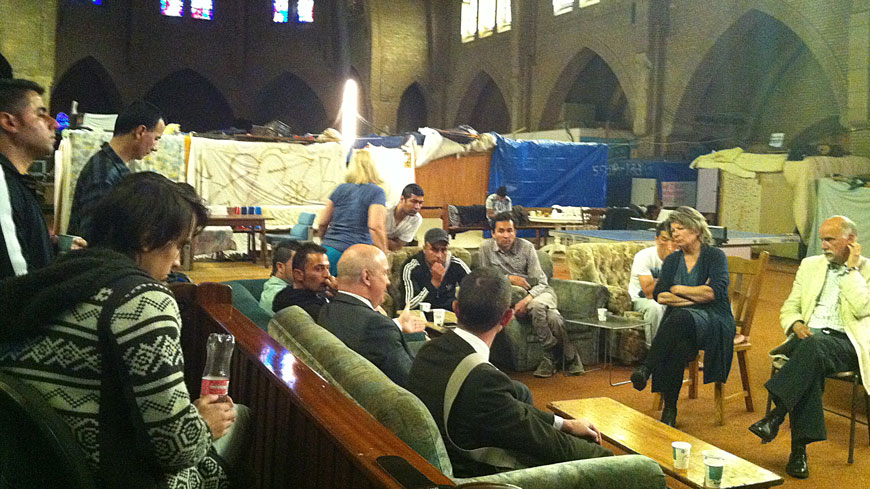In a Human Rights Comment Migrants in limbo in Europe have the right to live in dignity, published on 15 November 2016, the Commissioner draws attention to the plight of many migrants, primarily rejected asylum-seekers, who live in a state of protracted legal and social limbo without any long-term prospects. He points out that the authorities refuse to regularise them or to grant them any kind of legal status, but often they cannot go back to their countries of origin for various reasons, generally for fear of persecution. These desperate people tend to live in substandard conditions, completely excluded from society, lacking residence permits and the means to meet basic needs such as shelter, food, health or education. In essence, they are deprived of any opportunity to live in dignity. Commissioner Muižnieks noted many human rights concerns arising in this context, such as the widespread use of administrative detention and the risk inhuman or degrading treatment or punishment in the case of migrants’ deportation to their countries of origin. He also noted that the prolonged uncertainty about their fate and lack of contacts with the outside world adversely affect migrants’ physical and mental health. The Commissioner underlined that while the effective return of those not in need of international protection is an important aspect of migration law and policies, human rights considerations need to be fully taken into account when implementing them.
As to what European countries should do in this context, the Commissioner stressed that particular attention should be given to ensuring the prohibition of inhuman and degrading treatment and the protection of the right to respect for private and family life. All asylum claims need to be considered on their own merits in fair and efficient asylum procedures taking into account individual circumstances and up-to-date and relevant country of origin information. As noted by ECRI in its General Policy Recommendation No. 16, the effective protection of the human rights of all people, including migrants irregularly present, requires a strict separation of immigration control and enforcement activities from other state and private services. In all actions concerning children, the best interests of the child must be states’ primary consideration. Migrants who cannot be removed should also be protected from being arrested and placed in administrative detention. Moreover, they should be protected from labour exploitation and trafficking in human beings in full compliance with the Council of Europe Convention on Action against Trafficking in Human Beings.
On 16 November 2016 the Commissioner presented to the Committee of Ministers and the Parliamentary Assembly his 3rd quarterly activity report, covering the period from 1 July to 20 September, which summarises his country and thematic migration-related work during that period.



